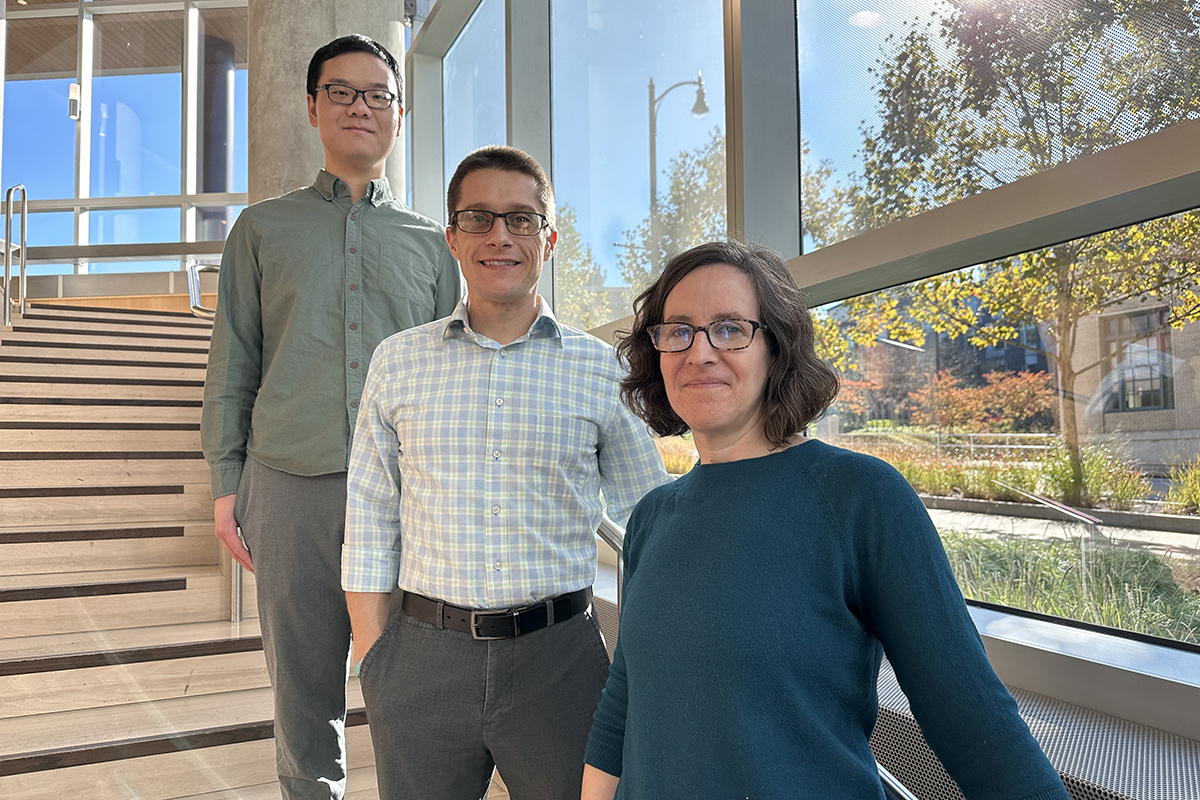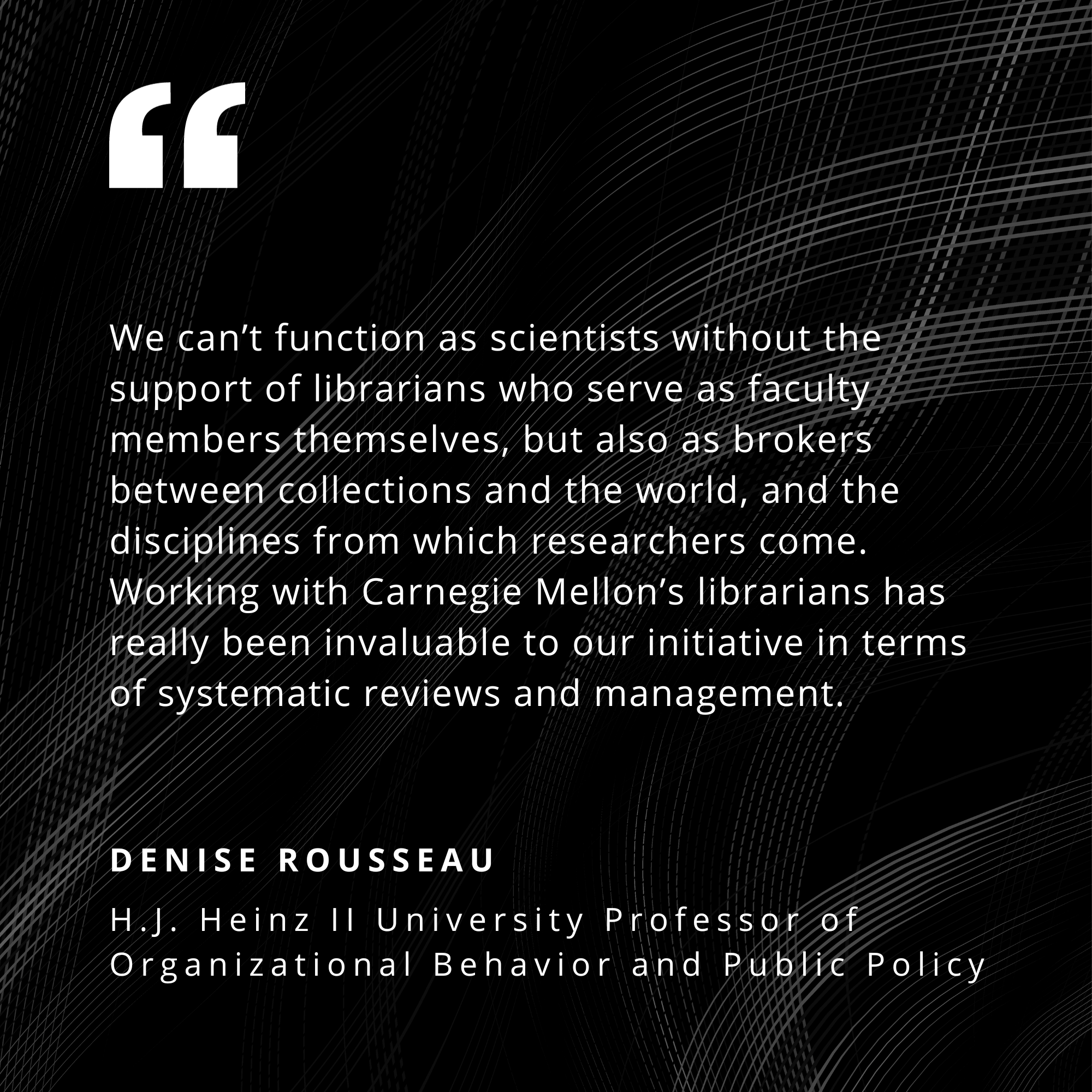
(Left-Right) Haoyong Lan, Ryan Splenda, and Sarah Young
 The University Libraries’ Evidence Synthesis Service team has offered their expertise to a number of complex, long-term projects taking place across campus. Over the past several years, librarians Sarah Young and Ryan Splenda have collaborated with H.J. Heinz II University Professor of Organizational Behavior and Public Policy Denise Rousseau on a systematic review that explored chief executive compensation and its effects on firm financial performance and inaccurate financial reporting. Their work on this project will serve as a proof-of-concept for conducting high quality systematic reviews in business and management.
The University Libraries’ Evidence Synthesis Service team has offered their expertise to a number of complex, long-term projects taking place across campus. Over the past several years, librarians Sarah Young and Ryan Splenda have collaborated with H.J. Heinz II University Professor of Organizational Behavior and Public Policy Denise Rousseau on a systematic review that explored chief executive compensation and its effects on firm financial performance and inaccurate financial reporting. Their work on this project will serve as a proof-of-concept for conducting high quality systematic reviews in business and management.
Rousseau, who is the co-chair and editor of the Campbell Collaboration Business and Management Coordinating Group and is world-renowned for her leadership in evidence-based management, wanted to learn how CEO compensation predicts the performance of their firms. In order to examine whether high CEO pay has a positive impact on the quality of their businesses, she turned to the expertise of Young and Splenda to dive into the existing research, performed by diverse experts with different backgrounds and methodologies. The librarians were able to comprehensively search this complicated body of evidence and provide support with data management and methods to look for meaningful trends.
Goal
- Complete a systematic review addressing the following question: Does chief executive compensation predict financial performance or inaccurate financial reporting in listed companies?
How We Helped
- As collaborators on the systematic review, Young and Splenda provided expertise on methodological approach, selected databases for and helped design, run, and manage database searching, and assisted with deduplication across sources and preparation of the screening project. They advised and trained the research team on screening methods and software. They also provided reproducible documentation of the searches for publication, and wrote the search and retrieval portion of the methods section of the paper.
- Because of their multidisciplinary backgrounds, Young and Splenda also offered a more broad perspective than a researcher who specializes in a single field. As a result, they could ask new questions about concepts that brought in different labels and approaches.
- They were also able to access unpublished “grey” literature that can be difficult for non-specialists to locate.
Results
- The finished systematic review, available in Campbell Systematic Reviews, is one of the first business and management coordinating group reviews that has been published. It lays the foundation for other academic teams to examine additional outcomes related to CEO financial incentives in the future.
- Young and Splenda also had the opportunity to visit Rousseau’s classes in both Heinz and Tepper, working with graduate students to embed search principles into rapid reviews and classroom assignments. This early exposure to evidence synthesis techniques will help the students understand the complex nature of large bodies of existing literature on specific topics/domains, navigate, search for, and evaluate the most relevant studies based on a question of interest, and utilize these skills in their future professional careers.
